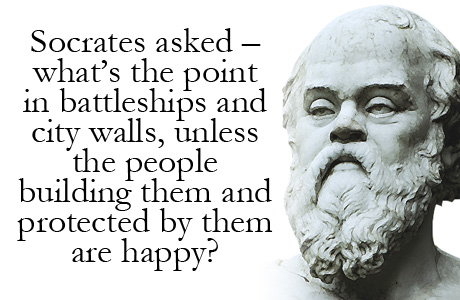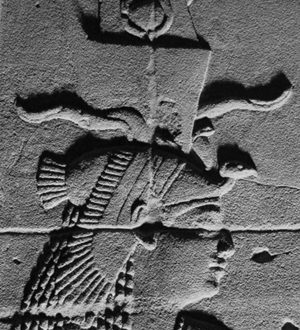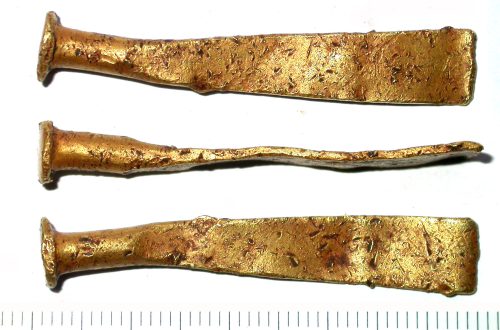 We think the way we do because Socrates thought the way he did, writes Bettany Hughes at the start of The Hemlock Cup, her brand new biography of ancient Greeces greatest philosopher.
We think the way we do because Socrates thought the way he did, writes Bettany Hughes at the start of The Hemlock Cup, her brand new biography of ancient Greeces greatest philosopher.
Two-and-a-half millennia of history might separate us from the age when Socrates roamed the streets of ancient Athens, formulating and articulating his philosophies to the people. But many of his words and ideas ring just as true in the 21st century as they did back then. (For a run-down of ten great Socrates quotes to reflect upon, check out Owen’s blog here).
From his beliefs on philosophical ethics to the justness of war, the folly of materialism, the necessity of true free speech and the importance of standing up for what you believe in, we count down 10 reasons why Socrates’ philosophies are still relevant today.
1. Theyve Never Been Rendered Obsolete
For starters, its crucial to note that, unlike many other intellectual disciplines of the ancient Greek period such as, say, ancient Greek astronomy, Socrates philosophies remain just as pertinent as the day they were conceived (or at least the day they were recorded by his student Plato).
As one 20th century philosopher, A. N. Whitehead, famously wrote: The safest general characterisation of the European philosophical tradition is that it consists of a series of footnotes to Plato. He wasnt being entirely serious there, but the inference is clear: Socrates and his disciples theories are a crucial foundation of modern Western philosophical thought all others since have basically been constructed upon them.
2. He Taught Us to Question Everything
The highest form of Human Excellence is to question oneself and others, Socrates once said. His dialectic method of inquiry breaking a subject down into a dialogue between two or more people with differing views, both mutually in search of the same truth taught us to assume nothing and to scrutinize everything, and gave us a system by which to do it. It remains a key element of scientific study today beginning with a hypothesis and then distilling it until a definitive conclusion is reached.
3. He Taught Us That Life is Worthless Without Happiness
If we arent in pursuit of happiness and understanding in our daily lives, then were basically akin to ants toiling at an ant-hill. Sure, we go about our practical tasks instinctually. But we also need to step back and develop an awareness of the world, and form a conscious relationship with our existence.
Socrates asked whats the point in battleships and city walls, unless the people building them and protected by them are happy? The same remains true today unless were mindful of spiritual well-being in our daily toil, were little better off than insects. As he famously put it: The unexamined life is not a life worth living for a human being. Think about that as you slog away at your 9-5.
4. He Taught Us to Ask if Theres Such a Thing as a Just War
It is better to suffer wrong than to do wrong, believed Socrates. As a soldier in the Greek army during the Peloponnesian War, one who distinguished himself several times for his bravery, Socrates saw enough of military conflict to understand first hand the suffering and devastation it caused.
His was one of the first voices in history to ponder whether there really is such a thing as a just war a war for a cause so true it was worth bloodshed on a mass scale. As UK and American forces remain bogged-down in Afghanistan and still lick their wounds from Iraq, its a question that remains incredibly pertinent today.
The Hemlock Cup
Socrates, Athens and the Search for the Good Life

For the first time ever, ‘The Hemlock Cup’ puts Socrates’ questions – How should we best live? What makes us good? What makes us happy? – back onto the streets of Athens where they were born.
5. He Advocated True Freedom of Speech
Athens was one of the first polities in the world to allow freedom of speech all from lowly shoemakers and merchants to rich nobles were allowed to address the Athenian Assembly. Yet they had to speak with aidos a sense of shame, a knowing-your-placeness as Hughes describes it in The Hemlock Cup.
Socrates rebelled against this convention, by developing a system of true free-speech through his dialogue. Athens was uneasy was this, but he spoke his mind anyway (and ultimately paid the price for it). He was way ahead of his time in standing-up for the free expression of ideas something that remains a cornerstone of democratic society today.
6. He Invented Philosophical Ethics
What is the right way to live? pondered Socrates. He was one of the very first philosophers in history to encourage scholars and common citizens to turn their attention from the outside world to the condition of humankind and to ask a simple, honest and undoubtedly critical question: what is right and what is wrong? With it, he effectively created philosophical ethics the debate between good and evil which has shaped moral and legal codes throughout the Western world.
7. He Was a Champion of Human Virtue
Shaped probably by some of the terrible sights he witnessed on the battlefields at Potidaea, Amphipolis and Delium during his military service, Socrates developed a notion of human virtue at odds with the then-prevailing attitude of lex talionis an eye for an eye. He believed in a mixture of temperance, justice, piety and courage all of which led ultimately to wisdom. He had seen so much bad, he wanted to search for something good.
Socrates was a firm believer in friendship and community, and common threads between all of mankind. Virtue, he said, is the most valuable of all possessions. We can always benefit from being a bit nicer to each other.
8. He Warned Us of the Follies of Materialism
Socrates typically cut a pretty down-trodden figure when he wandered the streets of Athens he never wore shoes, and sported the same tattered woolen cloak all year round. He was mocked for it by his contemporaries, but he didnt care his humble attire was a physical reflection of his belief that the pursuit of plenty could only bring mindless materialism.
He even had the gall to suggest to Athenians that they might be better themselves pursuing well-being rather than wealth words that ring truer than ever in consumerist modern society.
9. He Taught Us the Value of Civil Disobedience
Socrates was known as the gadfly of the Greek state he saw it as his responsibility to sting the government into action in areas where it could improve its conduct. He wasnt frightened to publicly speak his mind on the subject of bad governance, no matter the cost. One illustrative quote goes: It seems strange enough to me that a herdsman who lets his cattle decrease and go to the bad should not admit that he is a poor cowherd; but stranger still that a statesman when he causes the citizens to decrease and go to the bad, should feel no shame nor think himself a poor statesman.
As a famous modern advocate of civil disobedience Martin Luther King put it in a letter from an Alabama Prison in 1963: Just as Socrates felt that it was necessary to create a tension in the mind so that individuals could rise from the bondage of myths and half-truths so we must see the need for non-violent gadflies to create the kind of tension in society that will help men rise from the dark depths of prejudice and racism.
10. He Taught Us to Stand Up For What We Believe
Socrates lived and breathed his philosophies however much they were scorned, ridiculed, laughed at or feared and he ultimately died by them. The state swatted its gadfly, by trying him as a corrupter of youth and forcing him to commit suicide by poisoning himself.
He could have renounced his beliefs, and made a groveling defence during his trial but he chose instead to stand tall to the last and accept his punishment, even turning down an opportunity to escape. There was undoubtedly a degree of recklessness and martyrdom to Socrates death, but the lesson it teaches us about standing up for what we believe in to the very end remains powerful and enduring.
‘The Hemlock Cup‘ hits the stores (and Amazon) October 7th. It is not ‘merely’ a Socrates biography; using a unique combination of archaeological, geological and historical clues, the historian recreates for the reader the world of Socrates with a vivacity not before achieved.
Bettany Hughes visited every spot were the philosopher was said to have walked, loved, fought and philosophised and investigated the many digs that are uncovering the world of ‘Golden Age’ Athens. She brings this fresh evidence to bear on the life of the man whose idea ‘the unexamined life is not worth living’ is thought to be at the root of what it is to live in the 21st century.





